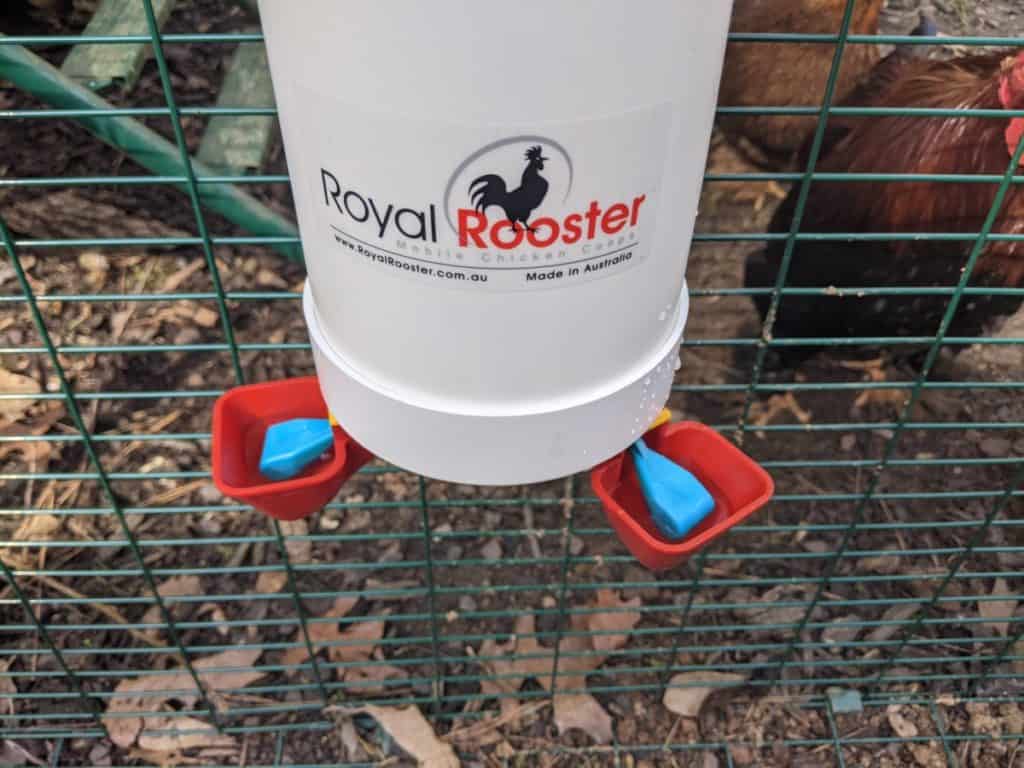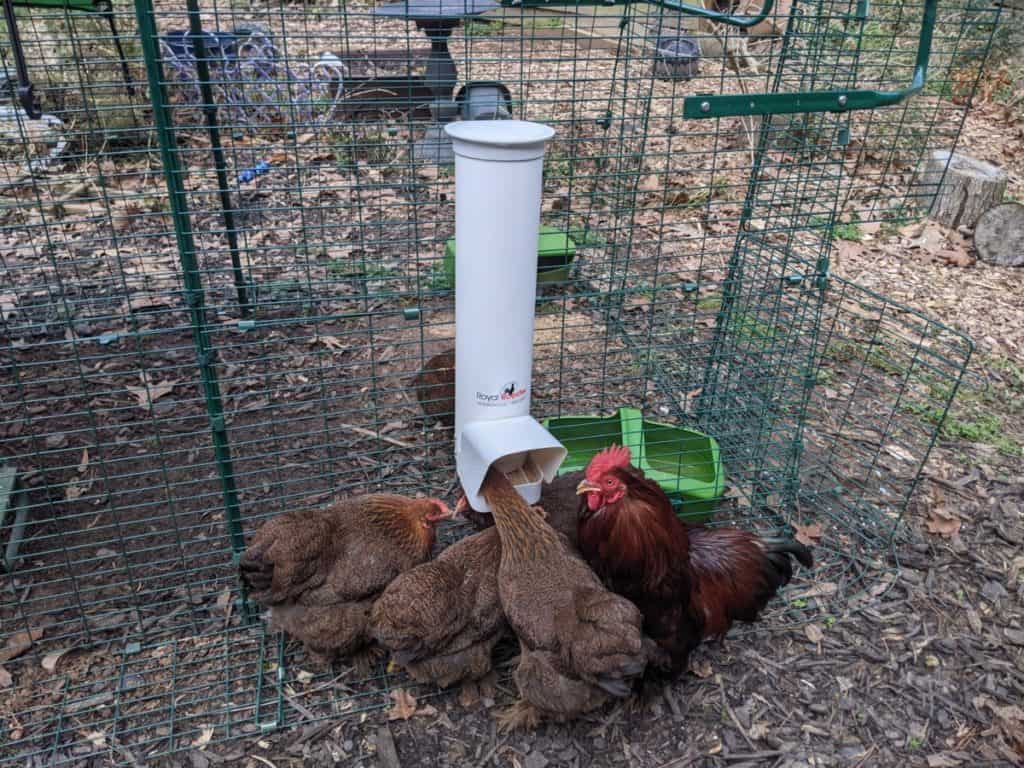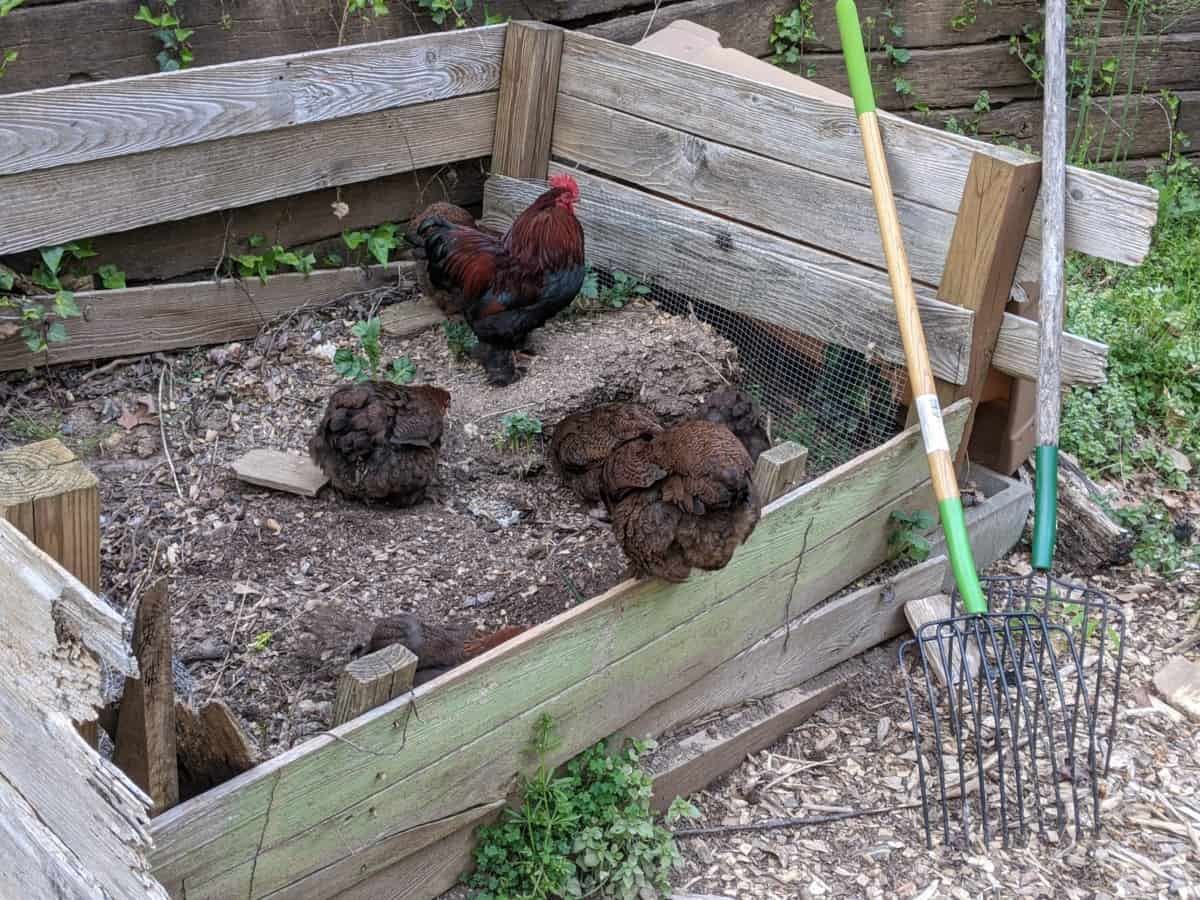As a good backyard chicken keeper, you never want to let your flock go hungry or thirsty. Ensuring that your chickens are well fed and watered will keep them healthy and laying many eggs for you. There are, however, times when your chickens do not strictly need access to their water and feed.
| New hatchlings | 72 hours |
| Baby chicks | 6 hours (less than 6 in extreme weather conditions) |
| Adult chickens (cooped) | 36-48 hours (mild weather), 8 hours (hot weather) |
| Adult chickens (free range) | Indefinitely if they have access to water |
Taking care of chickens is a full-time commitment, but you may be wondering if it’s okay to leave your flock unattended if you’re going away for the weekend. When I first got my beloved hens, I worried about leaving them without food and water overnight.
The reality is chickens are pretty hardy animals and can survive for a while without your care, depending on their age and whether they are free-roaming or live in a coop with a run.
Do chickens eat and drink at night?
When I was new to keeping chickens, I would make sure to leave some water and food in their coop overnight. I soon realized that they didn’t eat or drink any of it.
Chickens are diurnal animals, meaning that they are active during the day and sleep on their roosts at night. Their metabolism slows down while they sleep, and they will not get up for food or water.
Age affects how long chickens can go without water or food
Newly hatched chicks can go the longest without food or water because their albumen’s moisture and nutrients will keep them alive until 72 hours after hatching. If you are hatching chicks in an incubator, wait for all the chicks to hatch before taking them out.
The earliest hatchlings are not at risk of starving or dying of dehydration, waiting for their brood-mates to emerge. It’s the same reason that hatcheries can ship baby chicks.
Young chicks are tiny and do not have the same reserves as adult chickens. Because they are growing so quickly, their metabolism is very fast, so they need to drink water frequently. Delicate little chicks will die if they do not have water for over six hours (even less in extremely hot or cold conditions). It is imperative to keep your younglings well-watered!
Adult chickens can survive for up to 48 hours without water in mild conditions. In scorching weather, they can die of dehydration in just 8 hours. In cold, snowy conditions, chickens may survive a little longer without water because they will eat snow in a desperate attempt to rehydrate.
It is important to note that while chickens can survive without food or water, they certainly should never have to. Always have a clean supply of food and water available to your flock.

Why is water vital to chickens?
Like the vast majority of animals, chickens rely on water to survive.Without water, chickens are unable to digest their food. Near the top of their digestive tract, they have a crop, an organ that moistens their food, allowing for digestion. If a chicken’s crop dries out, it will starve to death.
Eggs are 70% water, meaning that laying hens need to drink a lot of waterto produce healthy eggs. When chickens are dehydrated for 36-48 hours, they will stop laying eggs for up to two weeks. If they get very water-stressed, it may even trigger them to molt their feathers, extending the period of not laying even more.
Chickens need to stay hydrated to help regulate their body temperature and to keep their organs functioning correctly. Provide your flock with a few different water sources, and make sure there are 500 milliliters to one liter of water available per bird.
Chickens can survive without being fed
Before we domesticated them, chickens survived in the jungle on their own, foraging for food and finding their own water. If you were to let them out and leave your backyard flock to fend for themselves while you go on holiday, the chances are they will be just fine (provided they have access to water and safe places to hide from predators).
It is prettychallenging to deprive chickens of food, as they always seem to find something to eat, like black flies, frogs, mice, or earthworms.We feed chickens to ensure that they get a complete, balanced diet and lay as many eggs as possible for us to eat. If chickens lack certain minerals, like calcium, they may lay soft-shelled eggs.
How to ensure your chickens always have food and water
When keeping backyard chickens, it helpsget a feed dispenser and a chicken watering device from the very beginning. These are convenient because you can fill the feed dispenser with grain once a week or once a month (depending on the size) and not worry about feeding your flock every day. The same goes for water dispensers, but these will need refilling much more often!
It is essential to keep the dispensers raised above the ground (a good six inches) to prevent them from filling up with bedding and feces when chickens scratch near them. You need to clean the water dispensers at least once a week, as bacteriagrows quickly and can lead to diseases and infections amongst your chickens. Keep water dispensers in the shade to keep them cool.
If you are willing to invest a little more into your backyard chicken setup, you can buy small commercial chicken watering systems, which you can connect to your mains water supply. Then you never have to worry about refilling their water; you will just have to keep the mouthpieces clean.

What to do with your flock when you go on holiday
If you’re unable to find a willing babysitter for your chickens, do not despair!You can happily leave your chickens on their own for a weekend, provided that they have lots of food and water, and their coop and run predator-proof.
If you want to go away for a week, you can leave them on their own, but you need water and grain dispensers that are large enough so that your chickens won’t go hungry or thirsty.
When thinking about leaving your chickens, another factor to consider is the size of their run and whether they have access to pasture. It may be unkind to leave your hens in a tiny run for a whole week.
For holidays longer than a week, one must either recruit a babysitter or invest in some technology for your backyard chicken setup. Ask a neighbor or friend to clean and refill the chicken’s food and water dispensers, and perhaps let them out during the day in exchange for some lovely, fresh eggs.
The other option is to invest in an automatic feeding and watering system and an automatic door that can be programmed to open in the morning and close before dusk.
It is not ideal to leave your flock for over a month, as chicken houses can get gross and unsanitary. Chicken feces and bedding rot together extremely fast, causing a build-up of ammonia and other bio-gasses that put your flock at risk of infection.
If you are planning a very long holiday, leave loads of food in their dispenser, ensure they have a constant supply of clean water, and let your chickens roam free. There is always a risk of predators getting to them, but if there are high enough tree roosts and plenty of hiding places, they should be okay.
Conclusion
A constant supply of food and water is vital to keeping a healthy flock of chickens. Adult chickens cannot survive for more than two days without water, and young chicks may only last six hours at best.
The exception is newly hatched chicks, which can happily survive for up to three days without water or food because of the nutrients and moisture supplied to them in the egg albumen.
At night chickens don’t eat or drink, so you do not need to put food and water inside their coop. You can easily leave your chickens for up to a week, if you are going away, as long as you leave them enough water and food.

